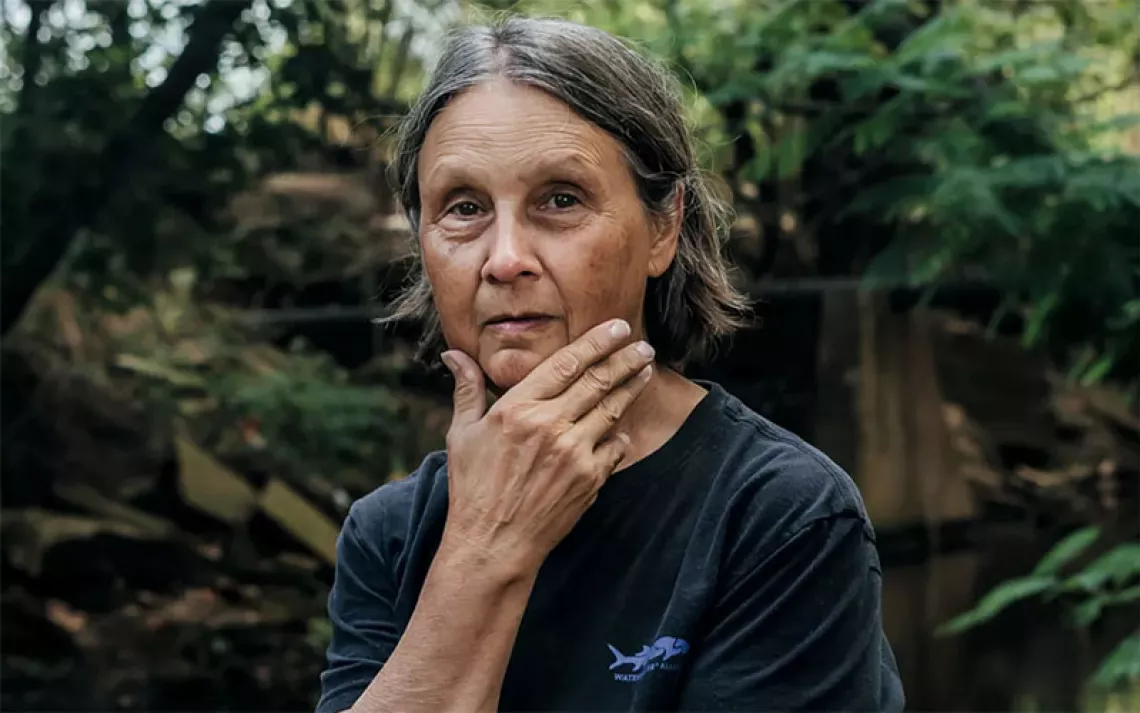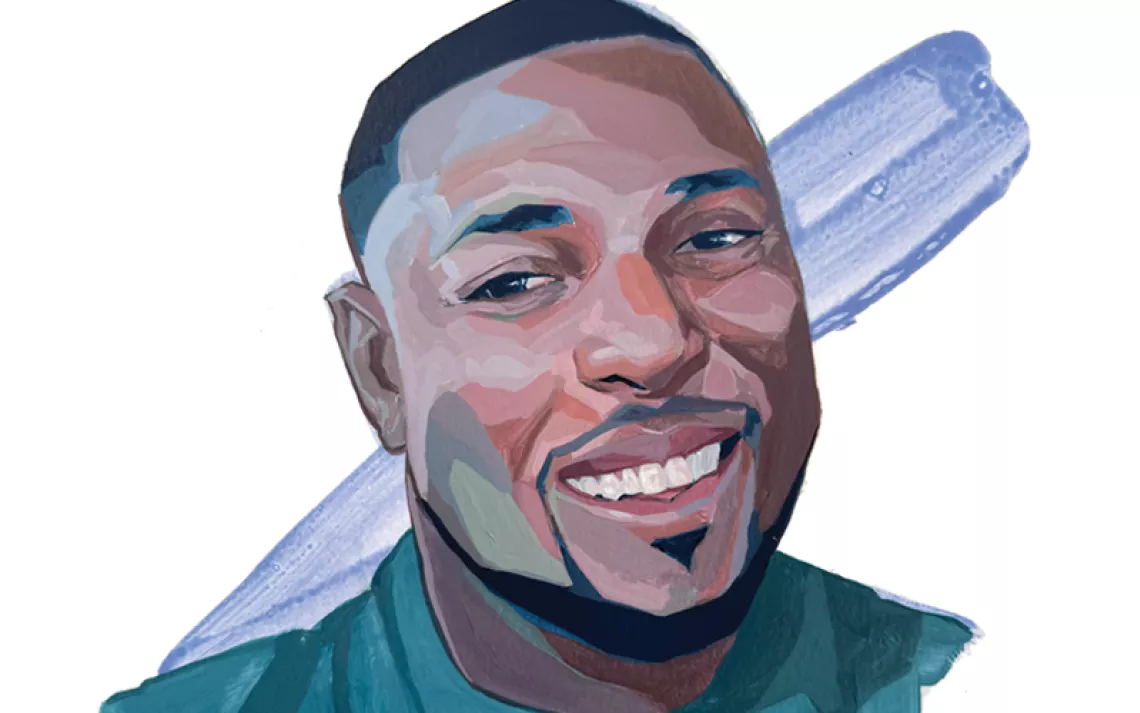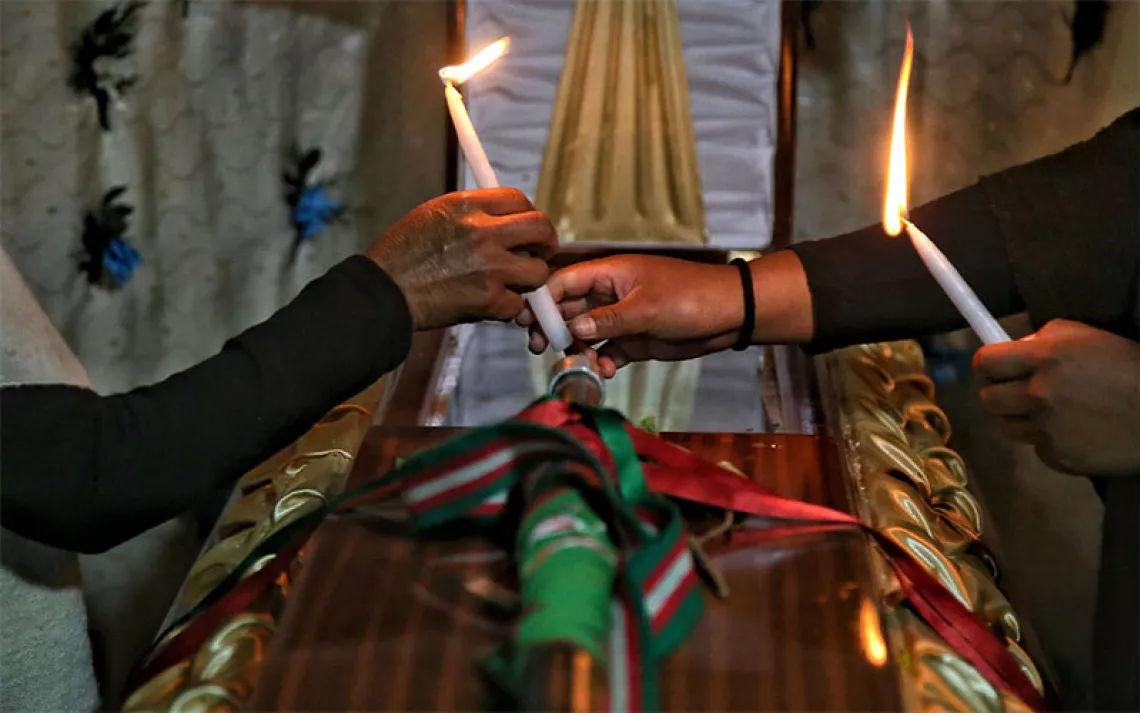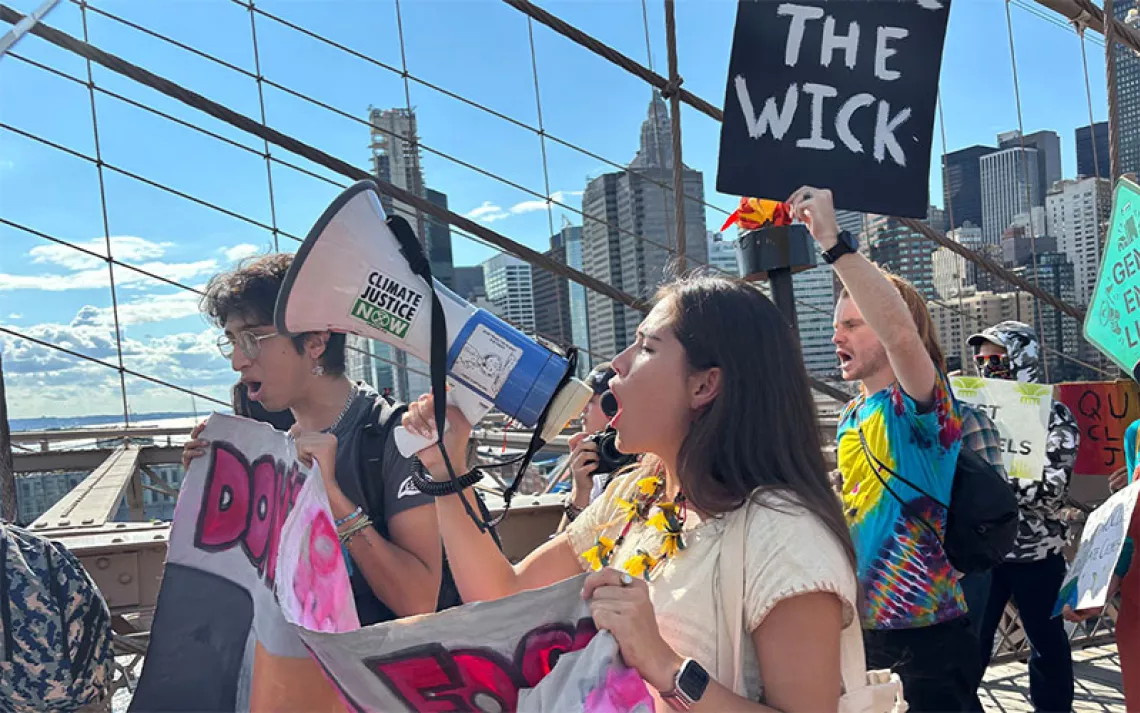Honduras: The Deadliest Place on Earth to Defend the Planet
A new report by Global Witness uncovers the awful regularity of political murders in Honduras

Photo by Dessothompson/iStock
Since the 2009 coup that overthrew the government of Manuel Zelaya, 123 land and environmental activists have been killed in Honduras, according to a new report by Global Witness. In a vast majority of those murder cases, no perpetrators have been brought to justice.
The report, “Honduras: The Deadliest Place to Defend the Planet,” profiles five cases from across the country—including the 2016 murder of Goldman Prize-winner Berta Cáceres—and issues numerous recommendations to the Honduran and United States governments, development banks, and investors to prevent further political murders.
“Our investigations reveal how Honduras’s political and business elites are using corrupt and criminal means to cash in on the country’s natural wealth, and are enlisting support of state forces to murder and terrorize the communities who dare to stand in their way,” Global Witness campaign leader Bill Kyte said in a press release.
“We have documented countless chilling attacks and threats, including the savage beatings by soldiers of pregnant women, children held at gunpoint by police, arson attacks on villagers’ homes, and hired assassins who still wander free among their victim’s communities.”
After the 2009 coup, Honduras became the “murder capital of the world” for several years. A recent report from the Asociación Kulkulkan declared Honduras to be the most dangerous country in Central America for LGBTQ communities.
Environmental activism in Honduras is far more dangerous than the typical North American advocacy to protect wildlands, endangered species, or institutions like the now-besieged Environmental Protection Agency. Honduran environmental activism—perhaps more like the indigenous struggle to stop the Dakota Access Pipeline—involves high-risk standoffs to protect the lands of indigenous and rural communities from destruction caused by dams, mines, and luxury tourism resorts.
The roots of the violence that citizen-advocates face, the report states, lie in “a systematic campaign to terrorize local communities into accepting the theft and industrialization of their land.”
The terror campaign in Honduras appears to be in full march. During the two years Global Witness was researching the report, three of the people interviewed for the project were murdered. Nearly everyone investigators spoke with had been threatened, attacked, or lost a loved one or colleague. In the past 10 years, according to the report, the Inter-American Commission on Human Rights ordered the Honduran government to implement emergency protection measures for 49 activists and land defenders; 13 of them were murdered anyway.
Global Witness is a London-based nonprofit founded in 1993 that, according to its website, seeks to expose “the hidden links between the demand for natural resources, corruption, armed conflict, and environmental destruction.” The organization has campaigns in 27 countries.
The new Honduras report follows up on an April 2015 Global Witness investigation titled “How Many More?” that contained a profile of Honduras, stating that 111 activists were murdered there between 2002 and 2014.
In “Honduras: The Deadliest Place to Defend the Planet,” Global Witness focuses on five case studies: The National Party’s links to illegal dams; Berta Cáceres’s murder in March 2016; violence associated with private mining companies; the murders of indigenous Tolupan community members protesting logging and mining; and Garifuna struggles against displacement for a tourism development.
In the case of the ruling National Party, Global Witness reports that the party’s president, Gladis Aurora López, is married to the man—Arnold Gustavo Castro—who controls two illegal dam projects: La Aurora and Los Encinos. Both dams received their licenses when Aurora López was serving in congress, in violation of the Honduran constitution. Both dam projects have been linked to threats, harassments, beatings, and killings of environmental defenders opposing the dams.
Berta Cáceres, the Goldman Prize-winning environmental and indigenous rights activist, was murdered in her home. Mexican activist Gustavo Castro narrowly survived a gunshot to the head (the bullet grazed his hand and ear) and is the sole surviving witness to the murder. Cáceres had denounced threats made against her and had told Al Jazeera that her name was on an army hit list (a claim later confirmed by a Honduran special forces defector in an interview with the Guardian).
Cáceres, as a leader of the Council of Popular and Indigenous Organizations of Honduras (COPINH), had been essential in the struggles against building a private dam on the Gualcarque River. Since her murder, eight men have been arrested, including active and former members of the Honduran army and employees of the dam company, Desarrollos Energéticos SA (DESA). However, Cáceres’s family, fellow COPINH members, and witness Gustavo Castro claim that the Honduran government has built a purposefully sloppy case against the material authors of the crime, while failing to pursue the intellectual authors, most likely high-level government officials and DESA executives.
Global Witness highlights the arrests made in Cáceres’s murder to point out the Honduran government’s ability to investigate and bring to trial those responsible for crimes against environmental defenders, but maintains that the vast majority of the crimes go uninvestigated and unpunished due to a “clear lack of political will.”
The Global Witness report identifies “five principal methods of corruption” that it found in all the cases it investigated. First, private business people use “political influence” to gain governmental licenses and permits. Second, companies bypass legal processes in place to guarantee environmental and community well-being. Third, companies use bribes to silence community opposition. Fourth, when the bribes fail, companies use hit men and often “enlist military support to halt defenders.” Finally, the report argues, impunity constitutes “the oxygen provided to perpetrators by the justice system.”
These five “methods of corruption” stem, according to the report, from the initial failure of private companies, the Honduran government, and international development banks and investors to meaningfully engage local communities in “free, prior, and informed consent” as established by the International Labor Organization Convention 169 on indigenous and tribal peoples.
“This in turn is what places so many environmental defenders at risk,” the report states, “because they are forced belatedly to challenge projects that are already underway, rather than realizing their rights to participation and to free, prior, and informed consent.”
The report calls out the United States’ responsibility in the human rights crisis in Honduras. The United States provides tens of millions of dollars annually to Honduras through various initiatives. U.S. law requires 50 percent of such aid to be withheld if recipient countries are found guilty of human rights violations. “Incredibly,” the report states, “after a year in which 14 land and environmental activists were killed and numerous others threatened, the U.S. State Department still approved the disbursement of funds in October 2016.”
“As Honduras’s biggest aid donor, the U.S. should help bring an end to the bloody crackdown on Honduras’s rural population,” Kyte from Global Witness said. “Instead it is bankrolling Honduran state forces, which are behind some of the worst attacks.”
Global Witness recommends that, among other measures, the U.S. government withhold 50 percent of all aid funds. The organization makes numerous recommendations to the Honduran government to combat corruption and impunity.
At the end of the report, Global Witness makes the following appeal: “All companies and investors should refrain from doing business in the mining, hydroelectric, logging, agribusiness, and tourism industries until the rights of local communities are protected, activists are safe to participate in decisions regarding their natural resources, and perpetrators of abuses are held to account.”
While the report does a service by drawing attention to the horrendous violence environmental defenders face in Honduras, the document leaves unanswered some important questions.
For example, what do the defenders in Honduras themselves recommend to people in other countries who might read the Global Witness report? What kinds of community-based initiatives might help protect those unprotected by the state? And perhaps most important, why does Global Witness direct all its recommendations to the very institutions linked to the perpetrators and the perpetrators' allies—the governments, companies, and banks implicated in the atrocities documented in the report?
In response, Kyte wrote by email: “Because they’re the ones who have leverage to be able to protect environmentalists.”
The authorities, however, seem to be the ones protecting the killers, not the environmental defenders. Which raises another question: How can concepts like "corruption" and "impunity" retain any explanatory power if the reality they describe is pervasive and systemic rather than isolated or aberrational?
In response, Kyte wrote: “I disagree. These are concepts that are heightened in the specific context of environmental defenders' killings.”
It seems unconvincing, however, to equate “a systematic campaign to terrorize local communities into accepting the theft and industrialization of their land” with “corruption” or “impunity,” both of which imply that there exists a state institution in Honduras capable of administering justice.
If there is no such institution in Honduras, that then leads to two final and related questions: What, if any, are the limits to human rights concepts and legal frameworks for stopping all this killing? To whom should one appeal if the entire structure of the state appears to support the violence against one?
Global Witness did not provide a response to these questions.
Given the harrowing conditions documented by Global Witness, it seems that the only effective strategy of resistance will come from within the communities that do not appeal to or ask permission of the institutions in charge of waging destruction against them.
 The Magazine of The Sierra Club
The Magazine of The Sierra Club



